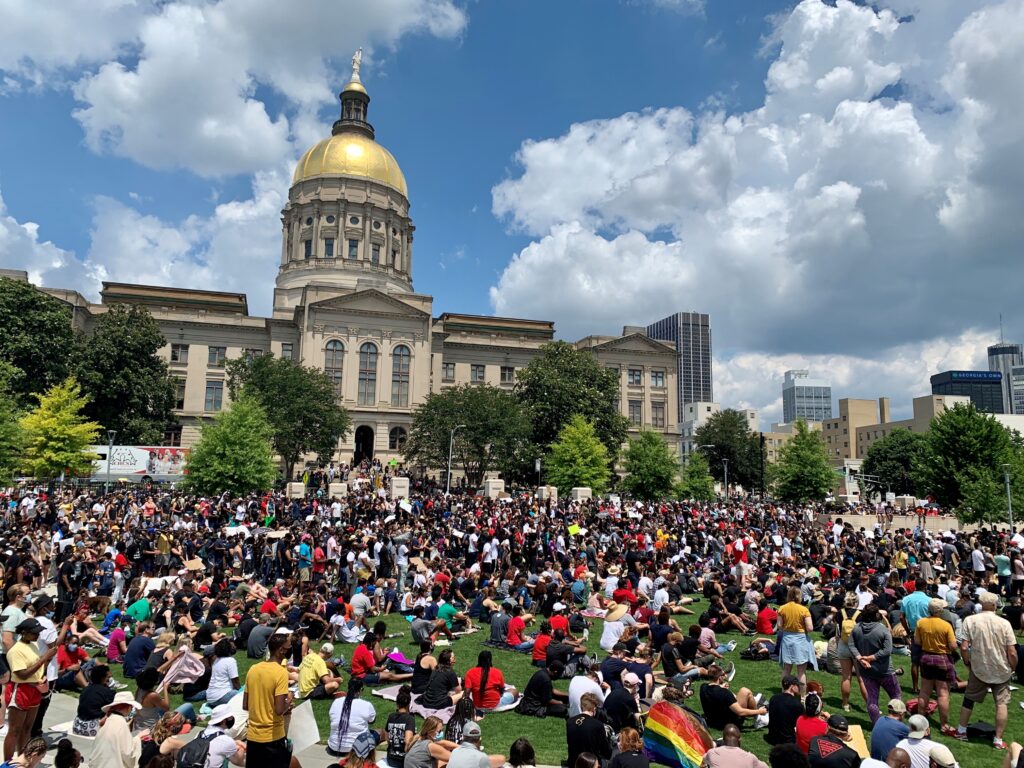
Police officers and first responders may not end up being protected classes in a contentious hate-crimes bill that has raised the blood pressure in the General Assembly in the waning days of the 2020 legislative session.
Lawmakers on the powerful Senate Rules Committee moved Monday night to remove police, firefighters and medics as protected classes in House Bill 426, reversing course roughly 72 hours after those occupations were added.
Sen. Bill Cowsert, who pushed for including first responders as persons protected from hate crimes in Georgia, gave little reason for the move Monday night other than to say Republican and Democratic leadership had “reached a compromise that I think everybody will be pleased with.”
“We think this is something that’s good for Georgia and good for the Senate to take the lead on,” said Cowsert, R-Athens.
The surprise reversal likely paves the way for swift passage of the measure in the coming days after tense negotiations and loud calls from top lawmakers to resist tinkering any further with the proposal.
It also appears poised to regain support from Democratic lawmakers who shunned the inclusion of law enforcement officials as protected under any hate-crimes legislation.
“I believe that we’ll be commending the bill to our caucus,” said Senate Minority Leader Steve Henson, D-Stone Mountain.
But the measure could still run into stiff opposition from Republicans. Several GOP lawmakers in recent days have insisted that the first-responder protections stay put.
And Senate Majority Leader Mike Dugan signaled he was not totally behind the reversal, noting that he was given little advance warning about the change before Monday night’s vote.
“I don’t want for a second to convey that I would support this as-is on the floor by not opposing it here in committee,” said Dugan, R-Carrollton. “But I do have some questions and concerns about it.”
Likewise, the first-responder protections likely are not dead in the water. They were added late Monday to a separate measure, House Bill 838, which deals with peer counselors for police officers as well as creating statewide rules on disciplining officers.
Both bills are scheduled for a vote on the Senate floor Tuesday.
In recent weeks, influential lawmakers on both sides of the aisle joined with advocacy groups and local business leaders in urging passage of the hate-crimes bill, sponsored by Rep. Chuck Efstration, R-Dacula.
Efstration’s bill would designate hate crimes as an enhancement to charges that prosecutors would have the discretion to bring. It specifies hate crimes as those targeting a victim based on “race, color, religion, national origin, sexual orientation, gender, mental disability or physical disability.”
The measure sat idle in the Senate for more than a year after passing the House in March of 2019 but picked up steam this month amid nationwide protests against police brutality and racial injustice.
Georgia House Speaker David Ralston, R-Blue Ridge, is a prominent backer of the bill who has called for the Senate to pass it without changes.
Efstration’s bill also gained fresh calls for passage following the fatal shooting of Ahmaud Arbery, a 25-year-old black man who was shot dead in February during a chase by two white men near Brunswick.
In another surprise move, Senate lawmakers also voted late Monday to add several recommendations to Efstration’s bill brought last week by Lt. Gov. Geoff Duncan, including the addition of annual data collection on hate crimes in Georgia.
Lawmakers also voted to limit offenses covered under the hate-crimes bill only to felonies and a few misdemeanors such as assault and theft. Efstration’s bill originally would apply for every crime in Georgia law.